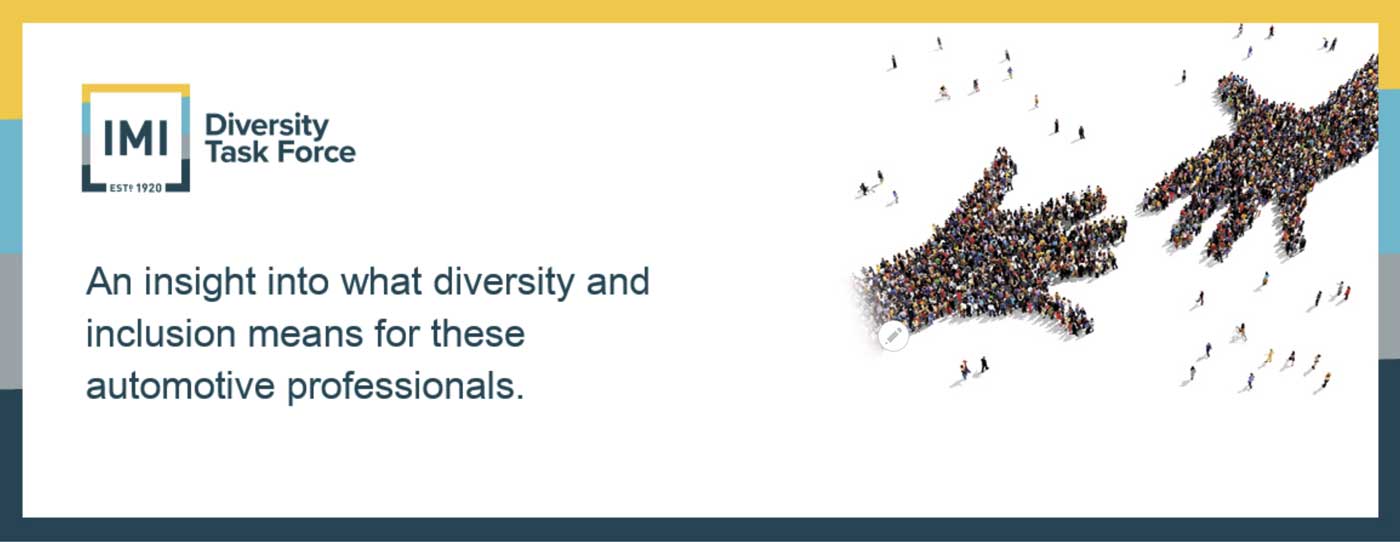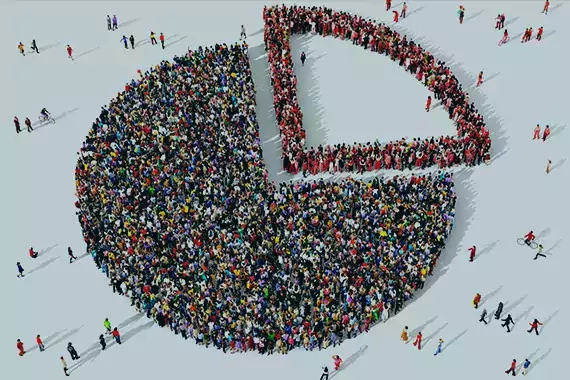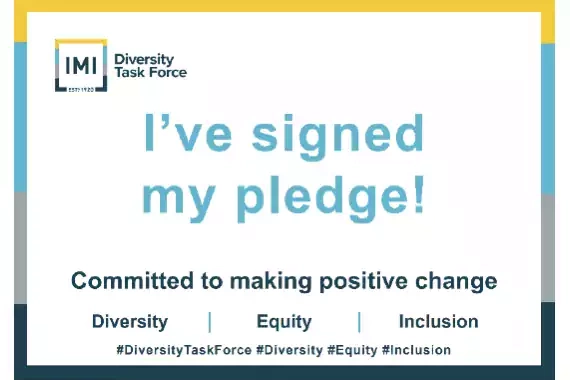Case Study: Jodie Williams

This case study attempts to use terminology that is acceptable to under-represented groups, but we appreciate that some of what is written may be problematic. For this we apologise. As with many others, we are on a learning journey and hope that you will bear with us as we move forward together.
Name: Jodie Williams
Job title: Head of Diversity & Inclusion at Sytner
My Career Journey
I’ve got an interest in Sociology and Psychology and I’ve always worked in diversity and inclusion. At university I initially planned to study Sociology but switched courses to study a degree in Media. My dissertation examined the impact that media has on communities to create change.
From university, I went on to work for a Community Media Radio station, on a placement which was supported by ITV. This role gave me the opportunity to create and be involved in a number of different community and talent programmes. From there I then joined ITV and did various roles around diversity and inclusion, community and charitable giving, sustainability and talent development.
My career journey continued as I then moved to Yorkshire Water, where I worked for a couple of years, implementing learning and development programmes for various under-represented and systemically excluded communities. After that, I worked for National Express, where my diversity and inclusion role focussed heavily on customer inclusion and accessibility.
I’ve been working as Head of Diversity and Inclusion at Sytner for just over a year.
In my spare time, I’m undertaking two voluntary roles; Harrogate Skills 4 Living, which is a charity that provides care, support, and accommodation to people with learning disabilities and autism in the Harrogate District. And I also volunteer for GIPSIL who work with children, young people and families in the most disadvantaged communities in Leeds to realise their potential.
Here, Jodie shares her own personal experience of allyship in the workplace and the importance of educating others and raising awareness.
How would you describe what allyship is?
Allyship is taking ownership and accountability for your own learning, and educating yourself. Then applying and putting that learning into action and proactively working towards creating a better world where everyone can thrive.
Knowledge is power! Sharing ideas and information is key to unlocking that power. Education provides huge insight which can then help drive people forward to want to create change in the work environment.
How do we stop people from being passive?
People should feel that there is a level of injustice in the world and should be proactively pushing to help change that through work and effort. It’s not enough for people in the workplace to just be ‘good people’, we need more than the bare minimum. We need people to be proactively involved in dismantling systems of inequality. We need people to give commitment to learning about different events, injustices, discrimination and so on. Work and effort to educate…
It's important to remember that everybody is different and people like learning/educating themselves in different ways. My ‘go to’ is books! I have an amazing library and I love reading! But if you don’t learn in this way then find the best option for you. Whether that’s educating yourself through films, networking groups, via online social media groups, or podcasts etc.
What core behaviours or attributes are needed to be an effective ally?
- Who are you championing? How do you know that you are supporting people in the way that they want to be supported?
- Listen to the voices in a room; whether that’s in a team meeting, or externally at a conference event:
- Notice under-representation
- Query why that is?
- Who has been excluded from the conversation?
- Draw attention to the current situation
- What changes can be made?
- Develop awareness so that your own behaviours do not impact negatively on others.
- Try to understand how the team works best and get to know your colleagues. For example, would the team work better if the company could consider introducing flexible working?
- When you have got something wrong, own up, apologise and learn from it.
- Listen to feedback and be open and honest with others.
- Be accountable for your own actions and the language that you use.
Allyship in action in the work environment: Education – Accountability – Awareness
Consider how you communicate with others and how others in the workplace communicate with you.
Have accountability. Learning how to apologise can have a big impact on a situation or context and can help to change behaviour.
Be really open to feedback; in particular, any feedback which relates to your own actions or own behaviour. Do not get defensive about the feedback you receive. Appreciate how hard it can be for people to bring the feedback to your attention. Demonstrate commitment to change and that you can do better.
Acknowledge if you’re not receiving any feedback. If that’s the case, consider why this might be? Do people feel safe, secure, and comfortable so that they are openly able to share their experiences and discuss their feedback with others?
People need to feel comfortable and psychologically safe in the work environment to be able to share their experiences, opinions, and give open and honest feedback. Creating these spaces is really important.
People trying to educate others about their behaviour; that’s practicing allyship. Allyship is about raising awareness, sharing voices, and learning from that. For example, there’s a group on Facebook, “You Might Wanna Learn More About Trans People.” Cis people can join but they can’t comment on posts for the first couple of hours, we have to just listen and learn. It’s a great way to really pause and de-centre yourself. It’s simply a space to learn, reflect, and take the information in and appreciate people sharing their lived experiences. I love that as a concept.
Amplify the voice and champion those who are under-represented or systemically excluded; uplift and support their ideas. This can make a significant difference. Develop self-awareness and be conscious of not merely repeating the views of people who are in your ‘in-group’.
How can an organisation or business encourage allyship?
- Education: Define what that means, set expectations, and explore how educational initiatives can be achieved across the business. There needs to be senior leadership buy-in. Everyone needs to be able to get onboard.
- Once defined, give people the tools to practice allyship. And be able to call-out and challenge others when negative behaviours or other traits are observed.
- Develop self-awareness across the workforce. For example, through 360° feedback, and feedback on behaviour, and examine the impact that this has had.
Are there any barriers to allyship?
Being a ‘good person’ isn’t enough; this is a passive perspective. A person can be unconsciously incompetent, it can also lead to lack of commitment for change and lack of senior leadership team buy-in. We need people to proactively create inclusive environments.
Three steps that employers could take to create a true sense of belonging in the work environment?
- Ask people if they feel included. A specific inclusion survey may be needed for this, with outcomes split by (for example); Physical and Non-visible Disabilities; Race and Ethnicity; Gender and Sexual Orientation.
- Understand how each person feels in the sector.
- What do people need to feel included? Put those support needs into action.




